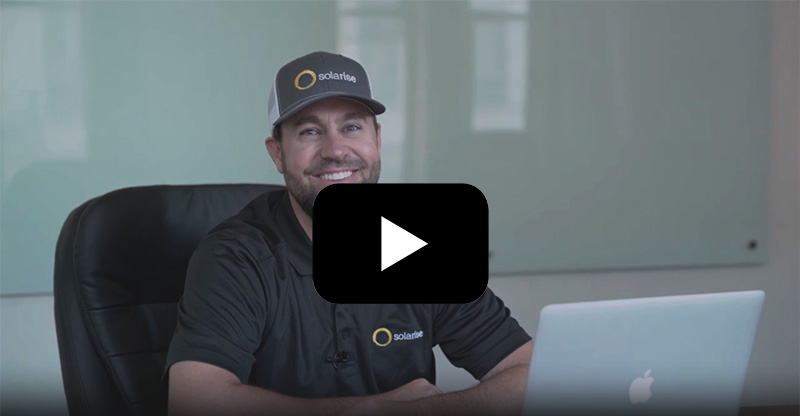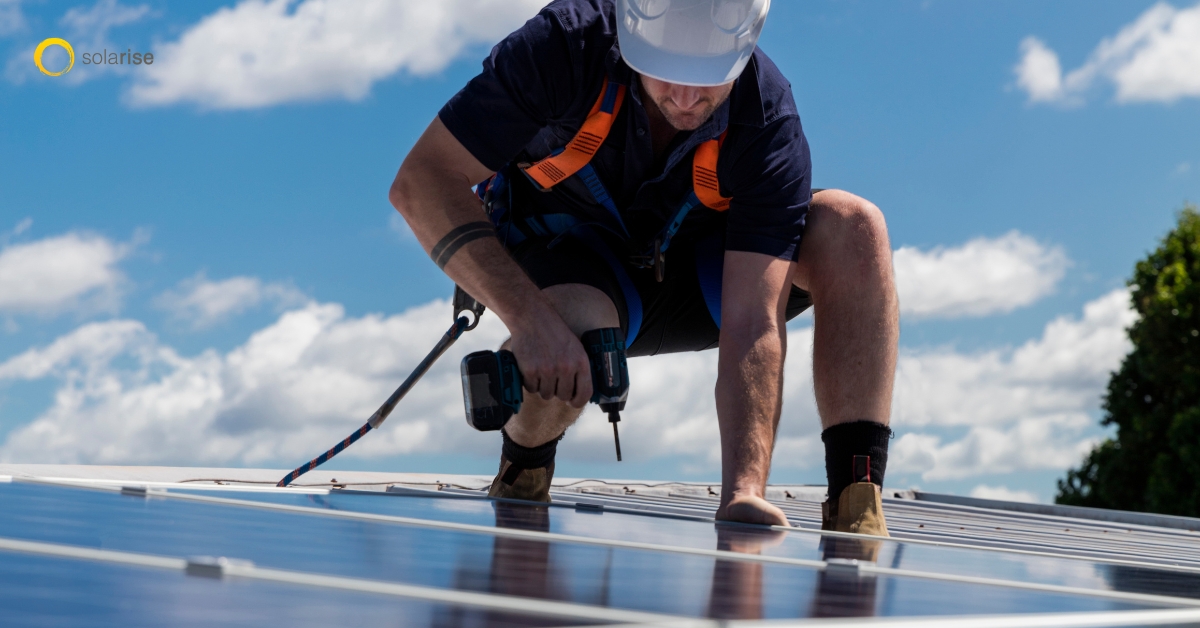


OWN SOLAR TODAY!
Utility companies increase rates year after year. Avoid rate hikes when you install rooftop or ground mounted solar panels in Colorado Springs, plus you can take advantage of great tax rebates!
Reduce Energy Costs in Colorado and Embrace Renewable Energy Today!
Benefits of Solar Power Panels
Why Choose Solarise Solar? We're Local!
Real Homeowners. Real Savings. Real Results.
Don’t just take our word for it. Watch how Solarise Solar helped these Colorado families slash their utility bills, boost property value, and take control of their energy future.
The Solarise Process for Residential Solar Panel Installation
Start with a FREE Solar Consultation, and we will be there with you every step of the way.
Looking for the best solar panel company in Colorado Springs? Give us a call at (719) 792-7674
Solarise Solar makes Solar panel installation for homes in Colorado easy!
Residential Solar Panel Installation Gallery
Check out a few of our solar panels for home installations in Colorado and Utah
Frequently Asked Questions About Solar Panel Installation
To see how much you are paying for electricity in your home or business, and to understand how much electricity you are actually using each month, examine your electricity bill details. It can be especially helpful to read the seasonal usage information provided by the utility company separately or as part of your regular billing statement. Some electric companies may not provide monthly and seasonal usage information clearly in a graph or numerical data report on the bill, per se. If yours does not offer that information in a digestible format, see the EnergySage publication The Best Way to Read Your Electric Bill. It provides straightforward help to interpret your electricity bill and understand the items on the bill that translate into usage information.
Utility companies use a method called net metering in order to measure the amount of energy being input back onto the grid by residential and commercial customers. When an independently operating solar energy system is generating more electricity than is being used at a home or business service location, the metering system accounts for the amount of the overage and credits the customer for the net amount of electricity sent out onto the grid. Alternatively, and more commonly, the net metering system calculates how much electricity a customer uses over the amount generated by your solar energy system and the company bills the customer for only that amount. Policies regarding net metering are different from one state to the next, so be informed on any rules in your state that may affect your billing.
You can pay cash for your solar energy system, or you may choose solar panel financing through our financing company. The best solar financing options offer customers certain advantages, such as zero down payment and low-interest financing, and other benefits.
To maximize financial savings by going solar, buying the equipment is normally the best option.
- You’ll receive rebates and other financial incentives.
- After you pay off the equipment, you’ll enjoy free electricity.
- Your property values can be expected to increase when you buy solar panels.
With a leased solar energy system you will not own the equipment after the lease ends, and having a leased solar panel system can be detrimental to property resale value.
One major incentive to buy solar panels is the 26% federal investment tax credit (ITC). This credit allows you to deduct 26% of the total cost of your home’s solar energy system from your federal income tax. You are likely to qualify for significant additional incentives in the form of discounts, a solar panel rebate, and tax credits, depending upon where you live. Ask what incentives your state, county, city, and your electric company offer for the purchase of a home solar energy system. Keep in mind that these incentives continue to decrease every year.
You can become energy independent, avoid ever-increasing electricity costs, and help save the environment by going green with your own residential solar energy system. Start by getting your free, no-obligation solar panel estimate and free Energy Cost Analysis. The analysis determines how many solar panels are necessary for your home’s cubic space. Get information on solar pricing, incentives, financing, warranty, and answers to all your other questions. Schedule Your Free Solar Panel Quote and Energy Analysis
Compare the cost of your monthly electricity bill to the amount of your payments for a solar energy system. If you will save enough on your electric bill to offset all or enough of the amount of your solar equipment payments so that the net cost of the transition remains within your budget, then you can afford to go solar. There are zero-down payment options with low-interest rates for residential solar energy systems. Plus there are still sizable government rebates, tax credits, and other financial incentives being offered by local and federal governments and utility companies.
The amount of electricity your home uses each month and the climate conditions in your region are the primary determinants of the size of the best solar energy system for your home. By examining your previous electricity bills and then comparing estimates from licensed solar installers, you can determine the size of the solar energy system you need.
Research has shown that adding a solar energy system to a home increases the property value — even more than a kitchen renovation, in some parts of the country. Research from Zillow (2019) indicates that people buying a house with solar panels were willing to pay an average of over 4% more than homes without the added solar energy technology. Naturally, your real estate value can only increase if you own your solar panel system. If you have a leased system, you’ll need to pay off your lease contract prior to selling your home, in order to take advantage of the increased property value that a solar energy system can add to your property.
The majority of solar panels are of the monocrystalline, polycrystalline (multi-crystalline), or thin-film type. Monocrystalline solar cells are cut out from a single silicon crystal. Polycrystalline cells are made of melted silicon crystal fragments molded together and cut into wafers. Thin-film solar panels are typically made of either cadmium telluride (CdTe), amorphous silicon (a-Si), or copper Indium Gallium Selenide (CIGS). Each of these three types of solar panels has its particular advantages and disadvantages. Determining which is the best type of solar panel for your home depends on the specifics of your property and the kinds of features you want in your solar energy production system.
After your site assessment has been performed and you have made your choice of solar panels for your home, your installer will complete and submit the necessary paperwork to obtain approval of your system. Then, whether you are putting roof mount or ground mount solar panels on your property, the installation process typically takes one or two days to complete. Search “solar panel installers near me,” as your starting point, to identify and compare reputable providers in your local area.
Examine information on the benefits of having a solar monitoring system for your solar panels. If you determine that you can benefit from maintaining awareness of the details of the amounts of energy being produced by your solar panels, ask about solar power monitoring equipment. A solar lease agreement may already include a free monitoring program that tracks the performance of your equipment. When you buy a solar energy system, you may need to purchase a solar energy monitor too, if you decide you want to have the performance information it delivers.
Power inverters are designed to convert the direct current (DC) of electrical energy produced by your solar panels from direct current (DC) to the alternating current (AC) needed for powering household appliances and other electrical equipment and devices in your home. There are three primary types of solar inverters for use in solar energy systems: Centralized inverters (also called string inverters), power optimizers (also called string inverters plus power optimizers), and microinverters.
Power optimizers and microinverters are sometimes categorized together as module-level power electronics (MLPEs). String inverters are designed to optimize the power output at the level of the strings that connect your solar panels to one another. Power optimizers work at the solar panel level, to reduce the impacts of shade on performance. Microinverters work at each solar panel to directly convert DC power from solar panels to AC electricity, on the roof, without requiring a centralized inverter. Your installer can help you determine the best solar inverters for your needs.
What Our Solar Power Install Clients in Colorado are Saying
Areas We Service
Solar Panel Installation for Homes in Colorado





